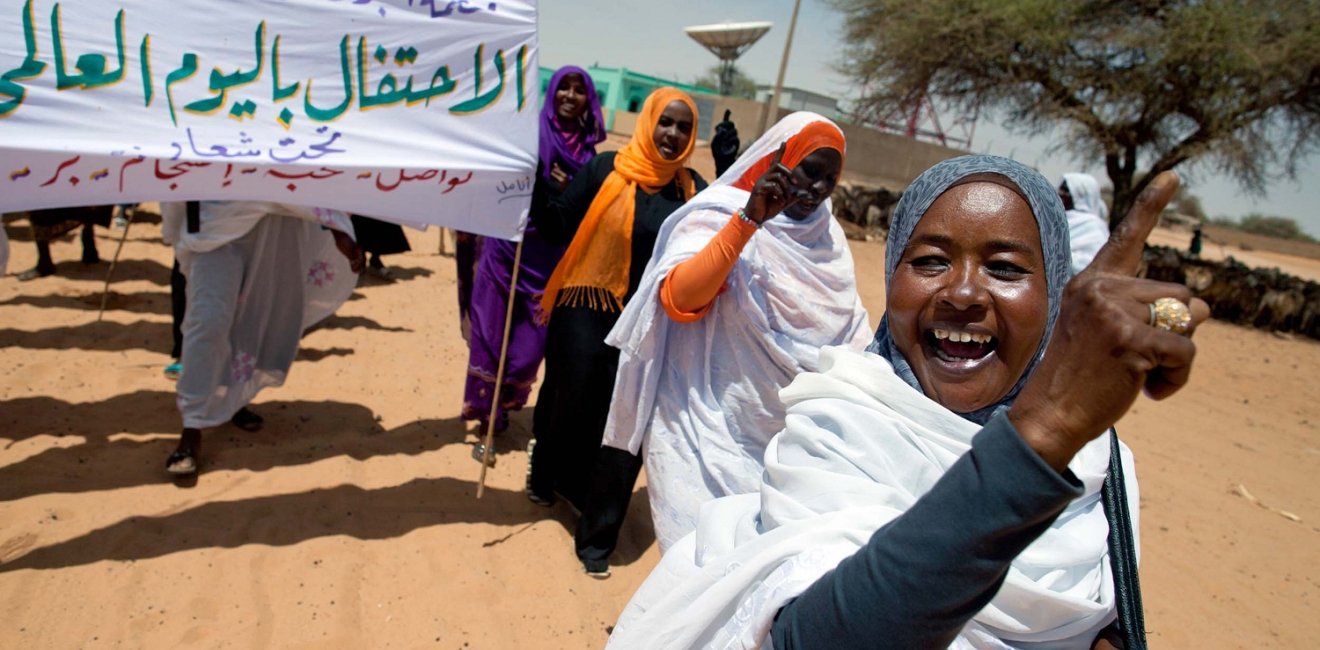
A blog of the Middle East Women's Initiative
In 2013, I left my house, walked to the nearest grocery shop to buy a can of tuna and yoghurt. They would be my alibi if I got arrested.
“I am coming from the grocery shop, I am not part of this protest,” would be my response if security or police officers attempted to arrest me from the protest. At the protest, which took place near my house, I was the only woman on the street, all the rest were men in their teens and twenties. Some women were standing in front of their doors and watching, but they did not take part.
This was on street 40 (now called Abdelazim the Martyr Street) and five years later, when protests erupted in December 2018, Sudanese women became a visible segment in the protest movement. They are protesting on the streets and harboring protestors in their homes. They are getting arrested, beaten and put on trial as a result.
Sudanese women have been fighting on several fronts for many years. On the streets, they face discriminatory laws that criminalize their dress code and behavior and puts them at risk in the public spheres. At home, they face strict societal norms that, at times, limit their participation in public and even their ability to get educational opportunities and eventually get a job. Online, they are shamed for putting up pictures that challenge societal values and for speaking their mind.
With Sudan entering its third month of protests this week and people demanding regime-change, women are at the frontline of this movement and they are not only protesting for political change, they are also challenging the patriarchy, represented in the government and in the home.
Two weeks ago, four sisters were denied leaving the house to protest by their father. They brought the protest to their home by putting up posters all over the living room. The posters supported the protest movement, but also talked about their inability to protest outside of the house. They didn’t use their names, rather called it the “Ashoosh revolution”. Ashoosh is a term of endearment for Aisha, a common name in Sudan. With slogans like “Ashoosh is locked in the backyard of her home”, their Facebook post about their small revolution went viral.
The fight for Sudanese women will be long and difficult. They are fighting against religious fundamentalism, a political ideology that thrives on suppressing women and strict norms and values that benefits from having a patriarchal system in place.
But they are ready more than ever to challenge the system and they have already started. Dozens of women are currently detained in prisons for fighting for political change while others have been beaten and subjected to sexual harassment on the streets for taking part in the protest.
Every time they protest, the security agents call them “prostitutes,” telling them that that they have shamed their family for taking to the streets, but every day, Sudanese women continue to join the protest movement. Everyday the society is challenged.
Image Source: International Women's Day, Albert Gonzalez Farran, UNAMID
Author


Middle East Program
The Wilson Center’s Middle East Program serves as a crucial resource for the policymaking community and beyond, providing analyses and research that helps inform US foreign policymaking, stimulates public debate, and expands knowledge about issues in the wider Middle East and North Africa (MENA) region. Read more


Middle East Women's Initiative
The Middle East Women's Initiative (MEWI) promotes the empowerment of women in the region through an open and inclusive dialogue with women leaders from the Middle East and continuous research. Read more

Explore More in Enheduanna
Browse Enheduanna
Women are the Catalysts for Change in Lebanon

How Education Can Empower Young Women in MENA


